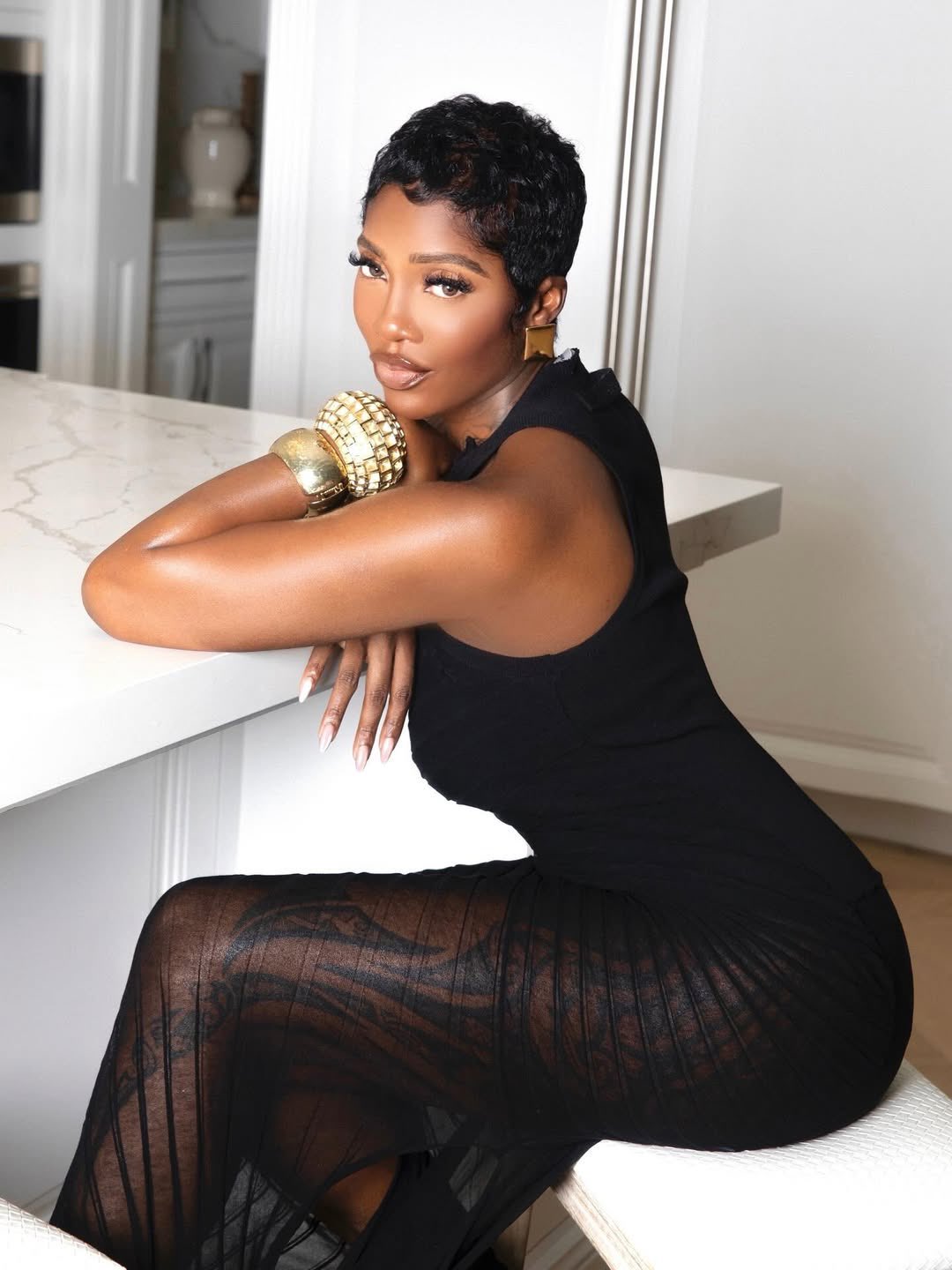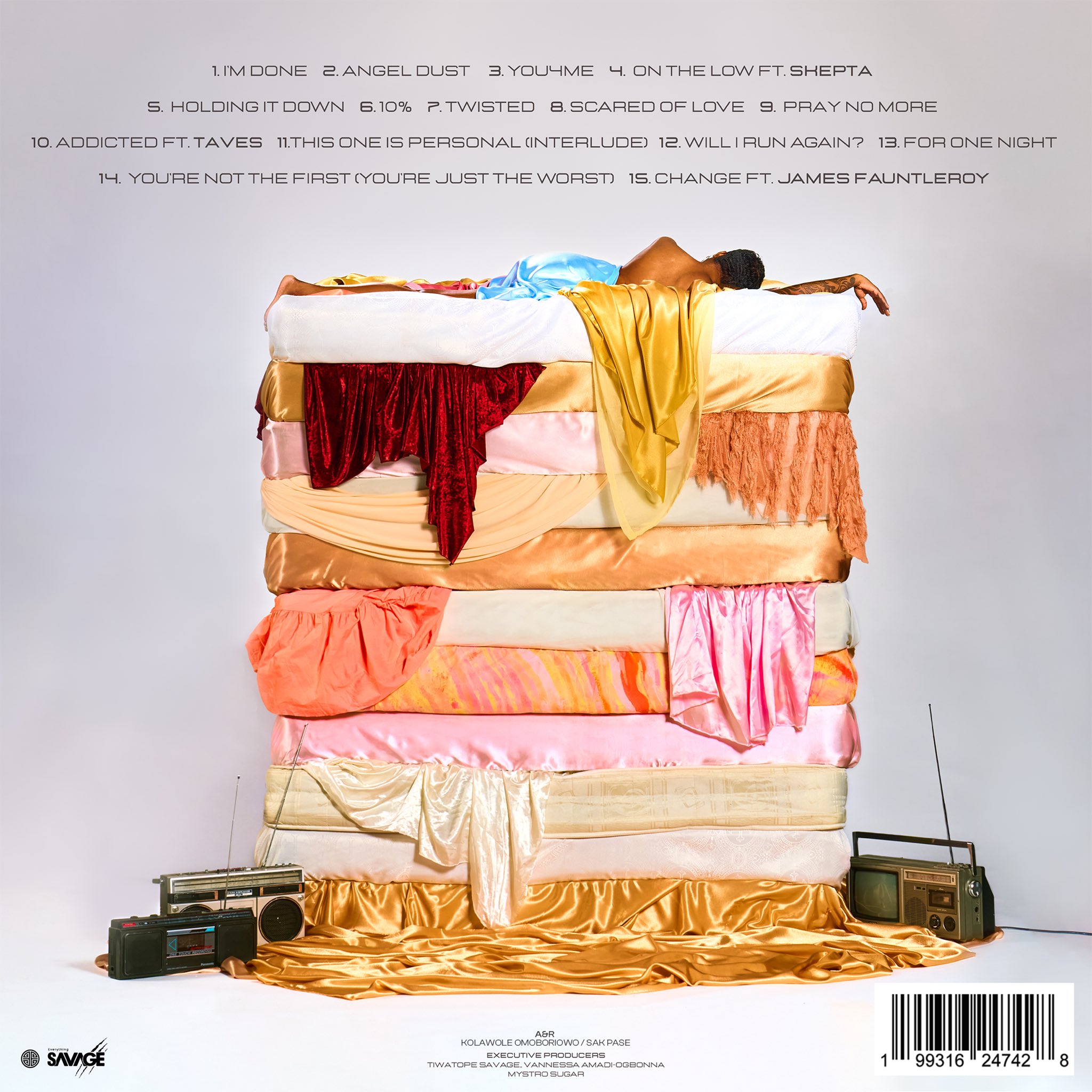With This Is Personal, Tiwa Savage reminds us that her truest strength lies in R&B, where her storytelling, vocal range, and melodic instincts find their richest and most evocative expression.
By Abioye Damilare Samson
Anyone who’s been an attentive observer of Nigerian Pop since the 2010s has witnessed Tiwa Savage consistently push the envelope, and how she has redefined the standard for female artistry to shatter expectations at every turn. It is a remarkable feat, when you consider that it is an industry dominated by male voices, which often sideline or outrightly overlook the contributions of female Afro-Pop artistes. Still, Tiwa Savage’s influence on the growth of Afro-Pop remains indisputable.
Much has been said and written about her in recent years, but perhaps the most striking truth is that she remains one of Africa’s brightest stars, unmatched in her ability to craft sultry, sophisticated R&B records. Her mastery of the genre reached a high point earlier this year with the release of “You4Me”, the lead single ahead of her new album This Is Personal, which pays homage to the iconic R&B queens of the ‘90s by sampling Tamia’s R&B classic “So Into You”, released in 1998.
Yet even before the release of “You4Me”, Tiwa’s post-Water & Garri releases—her ten-track soundtrack album for the feature film of the same title—hinted at the direction of her new project. Songs like “Forgiveness”, co-written with Priscilla Renea and Theron Thomas, and “Commitment” with Craig David, carried subtle threads of the cinematic and intimate R&B textures that have defined her artistry since she first stepped into the music scene 15 years ago, signaling the deeply personal and nuanced explorations listeners can expect on the new album, This Is Personal.
As she has shared in interviews, this album is the most vulnerable she’s ever been on a project. Fittingly, the album intro, “I’m Done”, is a deeply introspective ballad where she reflects on the heartbreak that seems to meet her every time she tries to fall in love. Aided by the melancholic, slow-burning piano, she sings with a raw passion that mirrors her ache and also reflects the depth of her vocal strength.
If “I’m Done” cracks the album open with heartbreak, the R&B-Reggae tinged “Angel Dust” is more of a reckless confession. Introduced by a sinuous bass guitar, the track recasts love as addictive and inevitably toxic. But, even while entangled in the grief of a corrosive relationship, Tiwa sounds at her most daring and self-assured.

On the pre-released “You4Me”, Tiwa Savage adopts the classic R&B style of the ’90s by sampling Tamia’s “So Into You”. It is unarguably one of the most romantic songs on the album. Still, perhaps the most captivating element of the track is the male vocal on the hook, “Ọmọ to ba re’di, lo ma gba dollar (I really like) Ọmọ to ba re’di, lo ma gba dollar (I really like)”, which adds a rhythmic spice and infuses it with an Afrobeats flavour.
Set against a steady mid-tempo groove, Tiwa Savage collaborates with UK rapper, Skepta, on “On The Low”. The pair mesh effortlessly over Rymez’s polished production, as Skepta’s usually precise and articulate bars frame a tender performance from Tiwa Savage. The song captures Tiwa yearning for a romance that feels secretive and exciting.
The tempo gets even slower and smoother as Tiwa Savage taps fully into R&B on “Holding It Down”, with a velvety voice that glides over guitar strings. She laments the chaos of a toxic partner who keeps her love life in turmoil and still, skillfully, conjures a sensual intimacy when she sings: “I’m a special kinda woman when I’m on it / When you let me control it, you hope I do it only for you / Said it’s a special kinda touch when we’re rolling”.
Saxophone and jazz-driven instrumentation open “10%”, where indulgence takes center stage. She captures the thrill of being summoned by her lover for a secret rendezvous while her phone sits at just 10% battery. It’s this same sensuality that she channels on “Twisted”, which interpolates Marvin Gaye’s 1982 classic, “Sexual Healing”, as she croons, “Do me like we’re going out of fashion/ My body is a big distraction/ Split me open and divide like fraction”.
Beyond the sensuality, some of the hallmark themes of R&B—love, heartbreak, and longing—are crafted to pull listeners into the emotional orbit of the music by making them feel every lyric, note, or flow with intensity. Tiwa Savage taps into this framework on “Scared of Love”, exploring both the yearning for connection while she also confronts heartbreak in the most gut-wrenching ways on the album’s titular track and interlude.

The Kenneth Wright-produced “Pray No More” opens with gentle guitar strings layered over a slow, deliberate kick beat. The track positions her as a steadfast partner, asserting that her devotion is already assured. Her vocals are warm and assured, gliding effortlessly over the understated instrumentation, which creates a moment of emotional depth.
On the Disco-influenced “Addicted”, she collaborates with Taves, whose silky vocals elevate the song to a magnetic chemistry, where both artistes express their all-consuming addiction to a lover without holding back. “Addicted to your mind/ Addicted to the way you are/ Addicted to the way you love me”, she sings in the chorus.
She gets groovy on the Afrobeats-inspired “Will I Run Again”, though the song’s core lies in introspection, as Tiwa Savage questions whether she has been naive in love or whether she will continue running from relationships despite past lessons. Similarly, on “For One Night”, layered log drums propel the track for a lively tune.
On the soulful “You’re Not The First (You’re Just The Worst)”, Tiwa Savage stretches her vocal range on another heartbreak anthem with emotional depth. She confronts the familiar pain of unreciprocated love: “Why do the boys I love always take my kindness for weakness? Oh, and leave me in pieces”. Yet even amidst the hurt, she offers a sense of hope by singing “But I will always get back up and try again/ ‘Cause this ain’t the ending or the beginning”.
The outro of “Change” is livelier than expected, with American singer-songwriter James Fauntleroy joining Tiwa Savage in a seamless harmonic interplay. Lyrically, the song explores transformation and devotion, as Tiwa repeatedly pledges to reinvent herself for someone she loves, and reflects the desire to be fully aligned with another.

In all, This Is Personal more than lives up to its name, as it pours out like a diary where Tiwa Savage turns her inner world and private emotions into song. Across the record, she allows vulnerability to take center stage without ever losing the poise and command that have long defined her artistry.
At its core, what elevates the project is how deliberate Tiwa Savage is with her songwriting. Her lyricism is deeply intentional. She sketches longing as vividly as she does fear, and renders heartbreak as lived experience. Even the choice of features, though few, expands the emotional palette without overshadowing her voice. And when she turns to interpolation or sampling, her decisions are strikingly thoughtful. Marvin Gaye’s “Sexual Healing” and Tamia’s “So Into You” interpolations on “Twisted” and “You4Me” respectively place the album in dialogue between eras of sensuality, with Tiwa situating herself as an innovator.
Musically, the album is fluid and harmonious in its flow: Jazz-tinged saxophones, acoustic guitars, piano chords, and disco elements all find their place without jarring transitions. With This Is Personal, Tiwa Savage reminds us that her truest strength lies in R&B, where her storytelling, vocal range, and melodic instincts find their richest and most evocative expression.
Lyricism – 1.7
Tracklisting – 1.4
Sound Engineering – 1.5
Vocalisation – 1.5
Listening Experience – 1.5
Rating – 7.6/10
Abioye Damilare Samson is a music journalist and culture writer focused on the African entertainment industry. His works have appeared in Afrocritik, Republic NG, NATIVE Mag, Culture Custodian, 49th Street, and more. Connect with him on Twitter and IG: @Dreyschronicle




